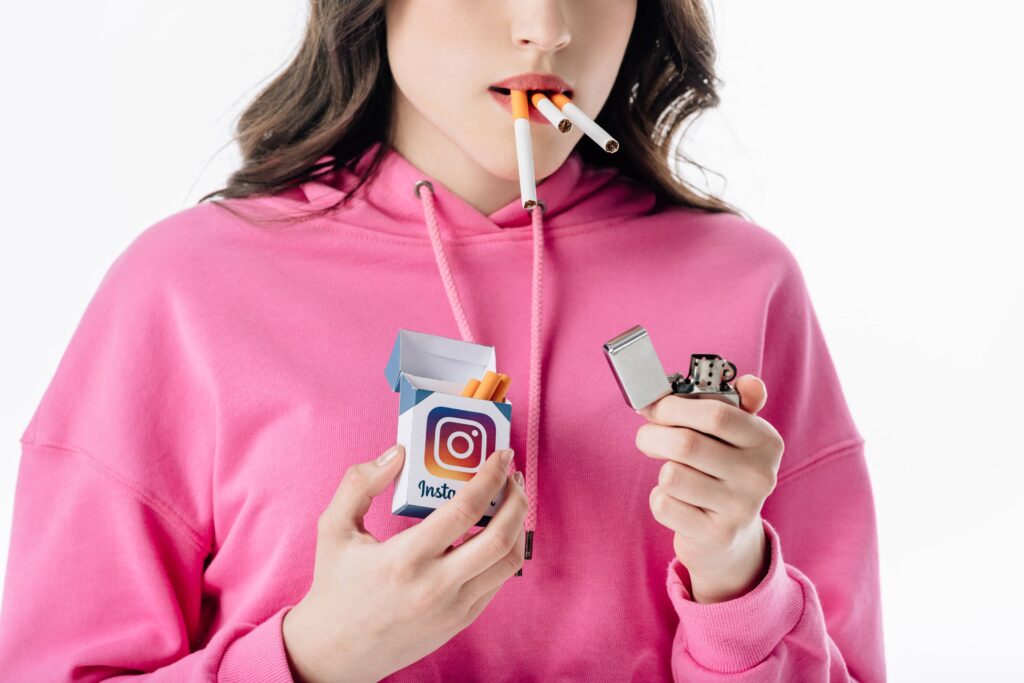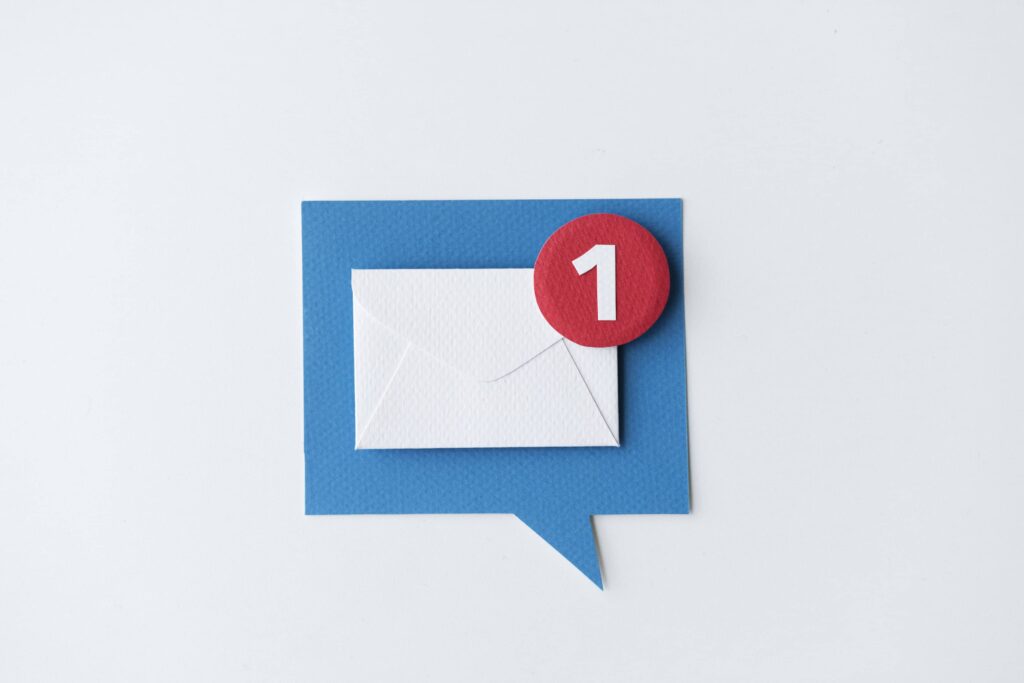Have you ever experienced feeling addicted to something, Instagram addiction is a real thing?
It’s that itch you just can’t seem to scratch; that urge to obsessively engage in a particular activity.
That lingering thought at the back of your mind that tells you to drop everything else.
It’s the part of you that only wants to focus on that one thing you crave so much.
Addiction can manifest in many forms, and can involve many things.
Have you ever considered that you might be addicted to social media? Or, to be more specific, addicted to Instagram?
It’s never easy for Instagram addicts to see the signs of their own Instagram addiction.
It’s even more difficult for Instagram addicts to admit and accept that they’re addicts in the first place.
However, if you’re really addicted to Instagram, other important aspects of your life may be suffering right now.
Here’s the scary thing: If you let things stay the way they are, they may even reach the point beyond restoration or repair.
Fortunately, the fact that you’re reading this means that you’re not too far gone down the slippery slope of Instagram addiction. In other words, there is hope yet for you.
Think of this as the first in a multi-step program to help you get over your Instagram addiction. And as with any good addiction program, we must first begin by getting as much information as we can about the subject at hand.
What Research Says About Instagram Addiction
Honestly, you don’t need to see numbers to realize that social media can indeed be addictive.
You can feel it in your bones, can’t you? That urge to check your Instagram feed or refresh your notifications (and the subsequent high that comes with the satisfaction of seeing a new post from your crush — or seeing that your crush liked your post). In fact, studies have shown that social media can be just as addictive as gambling!
However, in case you needed more convincing that this phenomenon is real, here’s a bit of research to back it up.
A recent survey of 752 university students examined the relationships between their personality, self-liking, daily Internet use, and Instagram addiction.
In addition, the study used path analysis to look into the mediating role of self-liking between Instagram addiction and personality. In the study, three scales were used: the Instagram Addiction Scale (IAS), the Big Five Inventory (BFI), and the Self-Liking Scale.
The findings showed that daily Internet use had a positive association with being addicted to Instagram and that self-liking was a mediator, both between agreeableness and Instagram addiction (partially) and between conscientiousness and Instagram addiction (completely).
At present, there is only a small body of research surrounding the topic of Instagram’s addictive qualities.
While there are certainly more studies required to get a better grip of this situation. It’s possible to identify some factors that contribute to the development of Instagram addiction.
Why Do People Get Addicted To Instagram?
There are basically four reasons why we get addicted to Instagram — and unsurprisingly, all of them are related to vanity.
1. We enjoy taking pictures.

The Instagram platform is designed specifically to appeal to our need to capture the beauty of life in photographs.
This is believed to be driven by the fact that, in a way, photographs allow us to preserve things and memories forever, exactly the way we saw or fell in love with them.
And with the rise of numerous devices with high-quality photography capabilities, taking pictures and sharing them with our friends has become easier than ever.
2. We get a special kind of high from taking good photos (Visual Content Consupmtion can lead to Instagram Addiction).
There’s nothing quite like the feeling of knowing that your output is excellent. The great thing about Instagram is that it doesn’t just serve as a platform to show off your photography skills. It also has built-in tools that can significantly improve the quality of your photographs with just a few clicks.
From frivolous filters to fantastic fixes, you can make sure that every picture you post is Instagram-worthy.
And the idea of an Instagram-worthy post leads us to the third reason for Instagram addiction which is…
3. Shareability (a.k.a. “Will my followers like my new post?”) feeds our Instagram addiction.
Like other social media platforms, Instagram comes with the built-in functionality to leave comments or drop likes on any post you can access.
There’s a certain level of gratification we achieve from seeing people like or leave comments on our posts. It’s kind of like the digital image equivalent of telling a joke in a full room and eagerly anticipating laughter from your audience. If you can get the room roaring, your ego will be soaring.
4. Instagram addiction is a way to escape the dreariness of everyday life
The average Instagram feed is usually full of posts from people who aim to project that they’re living the good life.
It’s this fantasy that not only prompts us to monitor the posts of our friends, but also encourages us to edit and post similar content on a regular basis.
We humans often crave escape from our day-to-day existence. Truth is, there’s nothing quite like visual stimulation to help us get distracted.
What are the signs of an Instagram addiction?
Now that we’ve identified the possible reasons behind an Instagram addiction, the next question to ask is: Are you an Instagram addict?
It’s actually possible to tell if you’re addicted to the platform if you exhibit any of the following signs:
1. You feel the urge to take “scrolling breaks.”
This is perhaps one of the clearest manifestations of an Instagram addiction. You’re unable to put your phone down for an extended period of time to focus completely on whatever it is you’re doing.
Whether you’re watching TV, doing the dishes, or working on a paper, you just have to check your phone for notifications.
What’s worse is that this behavior may also seep into your face-to-face interactions.
2. You make purchasing decisions solely out of the desire to create the perfect post.
Have you ever looked at something in a store and said, “Man, I’d love to post that on my Instagram profile,” or “That would go perfectly with the theme I have going on in my Instagram account”?
If you’ve ever taken yourself through the buying process just for the ‘Gram, then congratulations — you actually might be addicted.
3. You feel the need to post everything — as in everything — on Instagram.
It has become a frequent joke in pop culture that millennials can’t stop taking pictures of their food and sharing those pictures with their friends, instead of just concentrating on actually eating said food.
However, it’s actually less about a specific age group and more about a specific behavior.
People of all ages can take gym selfies and post them every single time, complete with hashtags that they spent 15 minutes dreaming up or researching.
4. You’ve actually paid for apps that can raise your account’s popularity.
Simply put, if you’ve gone the extra mile and forked out money for a paid Instagram tool, there’s a good chance that yes, you are addicted.
5. You feel attacked when you don’t get the reactions you want to get on Instagram
Yet another sign that you might be an Instagram addict is if you feel offended when someone doesn’t like your post or follow you back.
This indicates that you’re interpreting the virtual actions of the people you know as their real-life views about you.
This is dangerous, as not everything we do online reflects how we conduct ourselves in the real world.
And while social media has certainly allowed us to forge stronger bonds and stay connected regardless of physical distance, it’s important to remember that social media engagement, especially on Instagram, shouldn’t be your only measure of friendship.
6. You are incapable of looking away from the Instagram profiles of people you detest
Sometimes, Instagram addiction doesn’t just manifest in the form of obsessively checking the posts and profiles of people whom we love. It may also translate into obsessively checking the posts and profiles of people whom we hate.
You may not be sure about exactly why you do this; logically, it would make more sense for you never to check their profiles at all in the first place.
For some reason, though — perhaps either self-torture or Schadenfreude — you just can’t stop visiting the profile of the person you can’t stand.
7. You “test the waters” and delete posts that don’t get enough engagement.
This is a pretty clear sign that you’re really just in it for positive affirmation. You feel the need to check how many likes or comments your latest Instagram post got, and if it doesn’t reach the amount that you were anticipating, you delete it.
You’ve effectively tied your self-worth to your Instagram engagement, which is an undeniably unhealthy practice.
If you’ve demonstrated any of these behaviors, then it might be time to put down your phone, get off Instagram, and find ways to break away from your addiction.
Fortunately, while doing so may be a bit challenging at first, it’s certainly not impossible.
Now, here’s how to beat your Instagram addiction
There are a few simple steps you can follow in overcoming your Instagram addiction. They are:
1. Reduce the amount of time you use Instagram
The first step may sound simple enough, but it’s probably the step you’ll struggle with the most. You’d be surprised (though honestly, you really shouldn’t be) at how much it would help you break away from your Instagram addiction if you just stopped using Instagram so much all the time.
Actively work towards reducing the number of hours you spend in a day browsing your feed and whatnot. It takes some getting used to, but it’s the best (and only) way to start bouncing back from Instagram addiction.
If you really need help with that, try downloading some free time management apps. Alternatively, you can ask your friends to join you on your digital detox.
2. Detaching yourself from your Instagram engagement can alleviate Instagram addiction
Basically, stop being so concerned about your Instagram likes. That’s it, really.
Unless you’re running a business on Instagram — in which case there’s a plethora of tools for that — you absolutely should not worry so much about how many people are liking or commenting on your Instagram posts.
In the end, remember that the primary purpose of that platform is for you to be able to post and share your favorite photos. It wasn’t designed to be a popularity contest, and there’s nothing for you to gain from making it that.
3. Switch off your Instagram notifications will help towards you goal to cure Instagram addiction

Those notifications are just so tempting, aren’t they? You’ll have a hard time resisting the urge to check your Instagram account the moment you see that tiny icon pop up on your screen.
But here’s the thing though: Receiving Instagram notifications constantly will actually contribute to the stress and anxiety that you’re feeling.
Can you imagine being on edge every single time your phone lights up? (Or perhaps you don’t even need to imagine it anymore?) Do yourself a favor and disable your notifications. You’ll thank yourself for it.
4. Find a hobby in the real world (no, seriously)
More often than not, the reason why we become so invested and addicted to our digital lives is that we feel that we don’t have much to look forward to in our real ones.
With that comes the desire to project this image of living the idyllic life. Isn’t it much better to actually live that life, though, than simply pretend to do so?
Find a sport or hobby that you can devote time or energy to, or develop a skill that you’ve always wanted to master.
Perhaps you can enroll in a martial art class, or sign up for some swimming lessons. (Just make sure that you’ll actually focus on learning instead of taking selfies because that’ll defeat the purpose of the entire endeavor.)
5. Put some distance between yourself and your phone
Sometimes, it’s not enough that you’ve disabled your notifications. When push comes to shove, it’s time for you to put your phone away, for real.
Stop carrying your phone around with you, and find a place that isn’t easily accessible for you.
Make sure that you’ll know where to find it when you actually need it, though!
6. Stop checking the profiles of the people you hate
This one may actually seem like a no-brainer, but it is still worth mentioning. Spare yourself from the agony of self-inflicted pain. Just cut all ties with the people whose existence makes you miserable.
There’s literally no point in you checking their Instagram profiles, anyway. There’s nothing for you to gain, and you’re losing precious time thinking about people who probably aren’t even thinking about you.
If after all this advices you still need assistance, it would be advisable to seek professional help
https://www.choosingtherapy.com/social-media-addiction/




